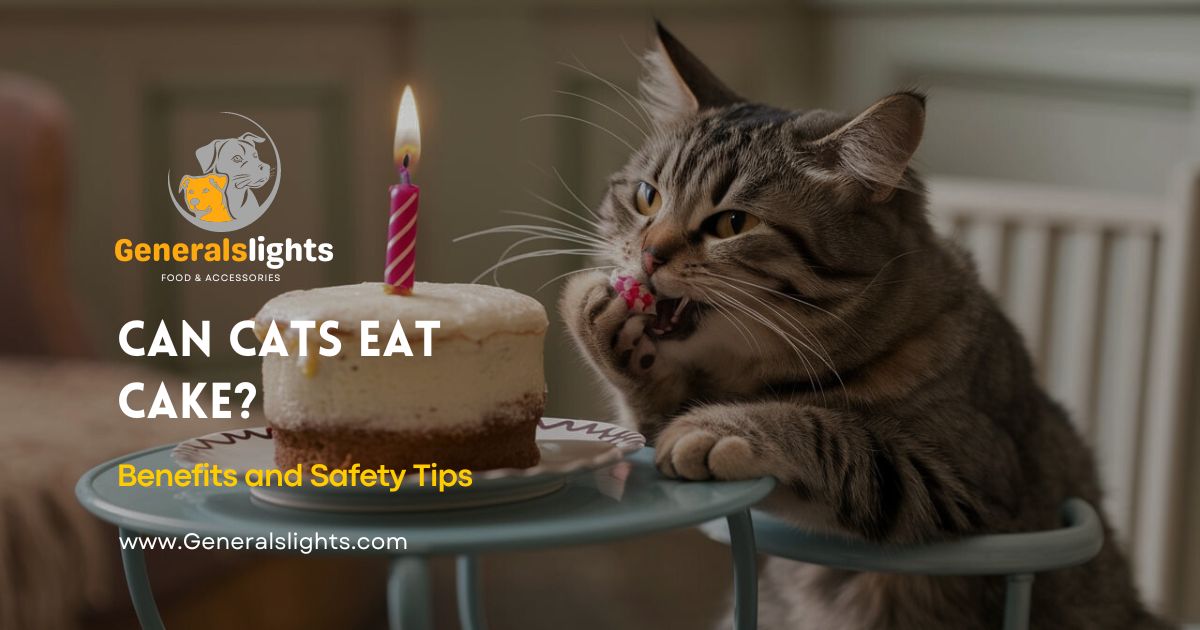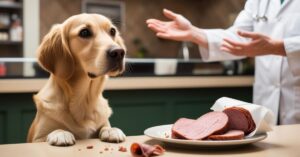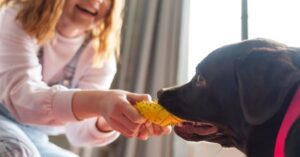Can cats eat cake? Cake might be tempting for us, but it’s not safe for cats. This article covers the vet-reviewed risks, including dangers from sugar, chocolate, and other harmful ingredients. Find out why cake should be off your cat’s menu.
Imagine your cat eyeing your slice of cake with curious eyes. While it might seem harmless to share a bite, cakes contain ingredients that can be harmful to cats. Before you hand over a piece, it’s crucial to understand the risks and ensure your feline friend stays healthy and safe.
Cakes often contain sugar, chocolate, and other ingredients that can be toxic to cats. Sugar can lead to obesity and diabetes, while chocolate is poisonous. Nuts and dairy, common in cakes, can cause digestive issues. Always avoid sharing cake with your cat and opt for safe, vet-approved treats instead.
Is Cake Bad for Cats?
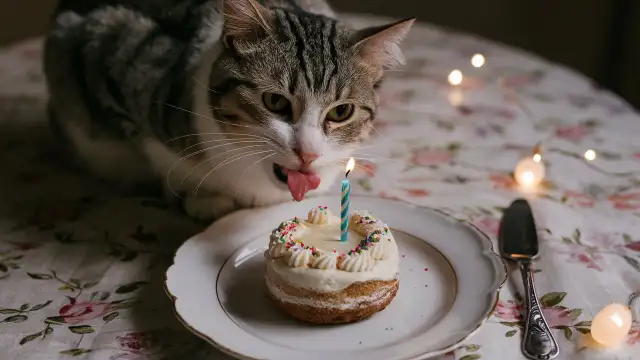
Yes, cake is generally bad for cats. Most cakes contain sugar, which can contribute to obesity and diabetes in cats, as they don’t process sugar well. Chocolate, a common ingredient in many cakes, is highly toxic to cats and can cause severe health issues, including vomiting, diarrhoea, and even seizures.
Additionally, cakes often have dairy, which can upset a cat’s digestive system, and nuts, which pose choking hazards or may be toxic. The rich ingredients and high-calorie content make the cake an unsuitable treat for cats, potentially leading to health problems and weight gain. It’s best to avoid giving cake to your feline friend.
Can Cats Eat Sugar?
Cats should not consume sugar as it poses several health risks. Unlike humans, cats lack the digestive enzymes needed to process large amounts of sugar. Consuming sugar can lead to obesity, diabetes, and dental problems. Excessive sugar intake can disrupt a cat’s metabolism and contribute to weight gain, increasing the risk of developing serious health conditions.
Additionally, sugary foods can cause gastrointestinal upset, including vomiting and diarrhoea. To keep your cat healthy, avoid giving them sugary treats or human foods that contain sugar, and opt for specially formulated cat treats that meet their nutritional needs.
Can Chocolate Cake Kill Cats?
Yes, chocolate cake can be extremely dangerous for cats. Chocolate contains theobromine and caffeine, both of which are toxic to felines. Theobromine can cause severe symptoms, including vomiting, diarrhoea, rapid breathing, tremors, and seizures. In severe cases, it can be fatal.
Even small amounts of chocolate can pose a risk, and chocolate cake often contains high levels of cocoa, increasing the danger. If a cat ingests chocolate cake, it’s essential to seek immediate veterinary care. To ensure your cat’s safety, avoid giving them any chocolate or chocolate-containing products and keep these away from their reach.
Vanilla Cake and Cat Health
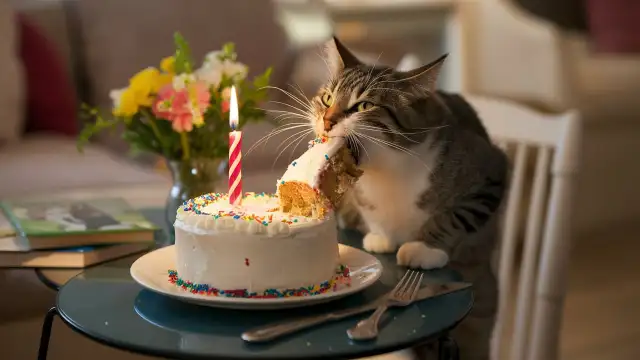
Vanilla Cake and Sugar
Vanilla cake contains sugar, which is harmful to cats. Excessive sugar can lead to obesity, diabetes, and dental issues in felines. Cats lack the necessary enzymes to metabolize sugar effectively, making it a poor dietary choice for their health.
Vanilla Cake and Dairy
Vanilla cake often includes dairy products like milk or cream, which can upset a cat’s digestive system. Many cats are lactose intolerant and consuming dairy can lead to gastrointestinal issues such as diarrhea or vomiting.
Vanilla Cake and Other Ingredients
Additional ingredients in vanilla cake, like eggs and flavourings, may not be toxic but are still not suitable for cats. Their digestive systems are not designed to handle rich, processed foods, which can lead to discomfort or health issues.
Can Cats Have Cheesecake?
Cats should not eat cheesecake. Cheesecake contains high levels of sugar, cream cheese, and often other ingredients like chocolate or fruit, which are harmful to felines. The high fat content can lead to obesity and digestive issues, while sugar can contribute to diabetes.
Additionally, many cats are lactose intolerant, making dairy products like cream cheese a poor choice. To keep your cat healthy, avoid sharing cheesecake and stick to treats specifically formulated for feline dietary needs.
Can Cats Eat Nuts
Toxicity Risks
Some nuts, such as macadamia nuts, are highly toxic to cats and can cause severe symptoms like vomiting, tremors, and lethargy.
Choking Hazard
Nuts can be a choking hazard due to their size and hard texture, which may obstruct a cat’s airway.
Digestive Issues
Nuts are difficult for cats to digest and can lead to gastrointestinal problems such as vomiting, diarrhoea, and abdominal pain.
High-Fat Content
Nuts are high in fat, which can contribute to obesity and pancreatitis in cats.
No Nutritional Benefit
Nuts do not offer any nutritional benefits for cats and should be avoided in their diet.
How Do Excessive Calories Harm Cats?
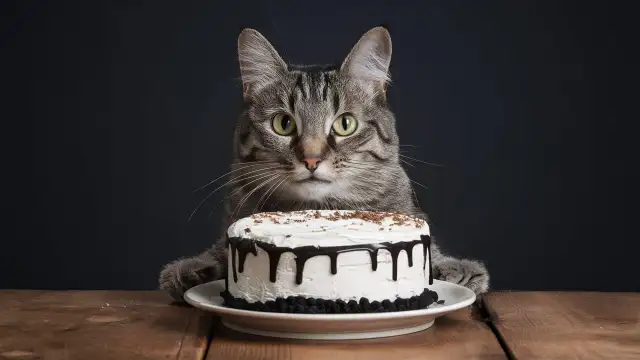
Obesity: Excessive calories lead to weight gain, which can result in obesity. Obesity increases the risk of diabetes, joint problems, and cardiovascular disease, impacting a cat’s overall health and quality of life.
Diabetes: Overeating can cause insulin resistance, leading to diabetes. This chronic condition requires careful management and can lead to complications like kidney disease, nerve damage, and reduced lifespan if not controlled.
Digestive Issues: A high-calorie diet can overwhelm a cat’s digestive system, causing gastrointestinal problems such as vomiting, diarrhoea, and discomfort. This disrupts their normal digestive function and overall well-being.
Ingredients to Avoid in Cake for Cats
When baking or serving cake to cats, avoid the following ingredients:
- Sugar: Contributes to obesity, diabetes, and dental problems in cats.
- Chocolate: Contains theobromine and caffeine, which are toxic and can cause severe health issues, including seizures and potentially death.
- Dairy: Many cats are lactose intolerant, leading to digestive upset like diarrhoea and vomiting.
- Nuts: Can be toxic or a choking hazard, and are high in fat.
- Artificial Sweeteners: Ingredients like xylitol are highly toxic and can lead to liver failure and hypoglycemia.
Symptoms of Cake-Related Toxicity in Cats
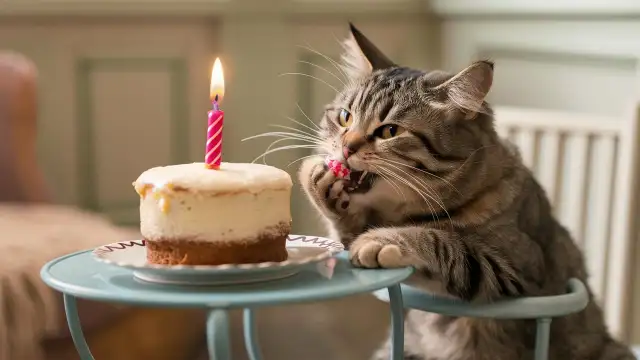
Symptoms of cake-related toxicity in cats include vomiting, diarrhoea, and abdominal pain, which result from ingredients like sugar, chocolate, or dairy. Toxicity can also cause lethargy, tremors, or seizures, particularly with chocolate.
Excessive consumption may lead to rapid weight gain or diabetes symptoms, such as increased thirst and urination. If you suspect your cat has ingested cake, observe for these signs and seek veterinary care immediately to prevent serious health issues.
Safe Treat Alternatives for Cats
| Treat | Benefits | Notes |
| Catnip | Provides stimulation and enjoyment | Safe in moderation |
| Cooked Chicken | High in protein, low in fat | Ensure it’s plain, without seasoning |
| Plain Yogurt | Contains probiotics for digestive healt | Only a small amount, check for lactose intolerance |
| Commercial Cat Treats | Specifically formulated for feline health | Choose ones with natural ingredients |
| Freeze-Dried Fish | High in protein, appealing to cats | Ensure it’s free of additives and preservatives |
Understanding Cat Digestive Health
Cats have a shorter digestive tract designed for high-protein, low-carbohydrate diets, making them less efficient at processing complex foods. Their stomachs produce fewer digestive enzymes, which can lead to issues like vomiting, diarrhoea, or constipation if their diet is not appropriate.
Understanding their dietary needs and avoiding problematic foods is key to maintaining digestive health. Regular vet check-ups help manage and prevent digestive issues, ensuring your cat’s diet supports their overall well-being.
Impact of Cake on Cat Behavior
Cake can negatively impact a cat’s behaviour due to its high sugar and fat content. Consuming cake may lead to gastrointestinal discomfort, causing irritability or lethargy. The rich ingredients can disrupt normal metabolic functions, resulting in increased thirst or urination.
Additionally, if a cat experiences digestive issues or pain, it may become withdrawn or anxious. Overall, offering cake can lead to both immediate discomfort and long-term health problems, affecting your cat’s behaviour and well-being.
Homemade Cat Treat Recipes
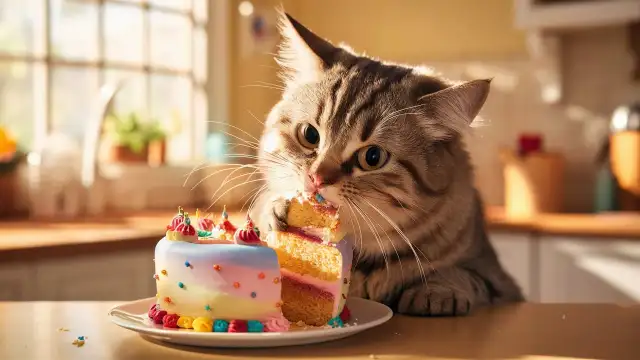
Homemade cat treats can be a healthy and enjoyable option for your feline friend. Here are a few simple recipes:
- Tuna Bites: Mix one can of tuna (in water) with one egg and 1/2 cup of whole wheat flour. Form into small balls and bake at 350°F (175°C) for 10-12 minutes.
- Chicken Liver Treats: Blend cooked chicken liver with a bit of water until smooth. Mix with 1/4 cup of oat flour and bake at 350°F (175°C) for 15-20 minutes.
- Pumpkin Snacks: Combine 1/4 cup of canned pumpkin with 1/4 cup of oat flour and a pinch of dried catnip. Shape into small pieces and bake at 350°F (175°C) for 10 minutes.
How to Monitor Your Cat’s Health After Eating Cake
After a cat eats cake, monitor their health closely for any adverse reactions. Watch for symptoms such as vomiting, diarrhoea, or signs of abdominal discomfort, which could indicate digestive issues. Observe their behaviour for changes, such as lethargy or unusual agitation.
Ensure they are drinking water and urinating normally, as excessive sugar or fat can affect hydration and metabolism. If any concerning symptoms arise or persist, contact your vet for advice. Regularly check their weight and overall health to catch any long-term effects early. Prompt attention can help prevent serious health issues related to inappropriate treats.
FAQs
Can cats eat cake?
No, the cake contains harmful ingredients like sugar and chocolate, which can cause health issues such as obesity, diabetes, and digestive problems.
What are the risks of chocolate cake for cats?
Chocolate cake contains theobromine and caffeine, which are toxic to cats and can lead to severe symptoms like vomiting, seizures, and potentially death.
Is vanilla cake safe for cats?
No, vanilla cake is unsafe due to sugar and dairy, which can upset digestion and contribute to obesity and other health issues.
Can cats have a small piece of cake?
No, even small amounts of cake can be harmful due to ingredients that cats cannot properly digest, leading to potential health problems.
What should I do if my cat eats cake?
Monitor for symptoms like vomiting or diarrhoea and contact your vet if any occur. Avoid giving cake and other unsuitable foods to your cat.
Conclusion
In conclusion, cake is not appropriate for cats due to harmful ingredients such as sugar, chocolate, and dairy, which can lead to severe health issues like obesity, diabetes, and digestive problems. To ensure your cat’s well-being, avoid sharing cake and stick to treats specifically designed for feline health. Opt for vet-approved snacks to keep your cat happy and healthy.
Read More:

Emerson is an expert in the world of pets, specializing in understanding diverse breeds, nutrition, and health. His deep knowledge ensures your pets receive the best care, from balanced diets to top-notch health advice, keeping them at their happiest and healthiest.
